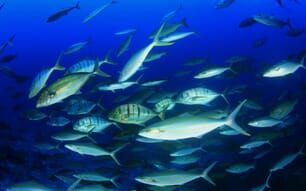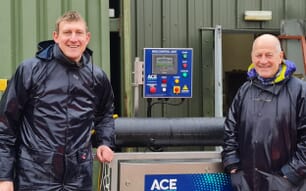The report revealed that 24 fishing vessels were lost in 2011 the most since 2005 while eight fishermen lost their lives in the course of the year. The SFF is extremely concerned at the level of accidents but also points out that the fishing industry is working pro-actively to improve safety at sea.
Derek Cardno, SFF Safety Officer, said: The SFF would like to thank the MAIB for their excellent report and for the work that the branch does. As an industry body we are very troubled and saddened, as is MAIB Chief Executive Steve Clinch, at the loss of eight fishermen last year and at the extremely high level of fishing vessel losses.
Mr Cardno said the SFF agreed with Mr Clinchs words in the report that if the safety record of the fishing industry is to improve, more focus is needed from all industry stakeholders on how to provide these fishermen with effective education and guidance on issues such as basic stability, watch keeping, navigation and safe working practices.
However, the SFF is disappointed that work and effort that has gone into launching several industry led initiatives hasnt been recognised by the MAIB.
Mr Cardno said: Many UK fishing industry representatives are working hard to improve fishing safety and training and perhaps a new day will soon dawn for the MAIB as a stakeholder in fishing safety to become more involved and assist in this area.
The fishing Industry has been encouraged recently at the revitalisation of Seafish after its period of uncertainty, and it is hoped that Seafish management recognise through its newly formed panels that fishing safety has to be a number one priority.
When studying the report closely, then a real theme comes out of a seriously high rate of machinery failures leading to a variety of incidents. The industry recognised several months ago the need for better machinery training. Work has been underway in this area for over a year with the MCA looking at the Class 2 engineering course and Seafish developing improved short courses, which will hopefully lead to important improvements in fishing vessel safety.
Fishing Industry Working Hard to Improve Safety at Sea
SCOTLAND, UK - Responding to the publication of the Marine Accident Investigation Branchs latest annual report, the Scottish Fishermens Federation says a whole range of fishing industry supported initiatives are currently underway to improve safety at sea, including new types of training.
by Lucy Towers




